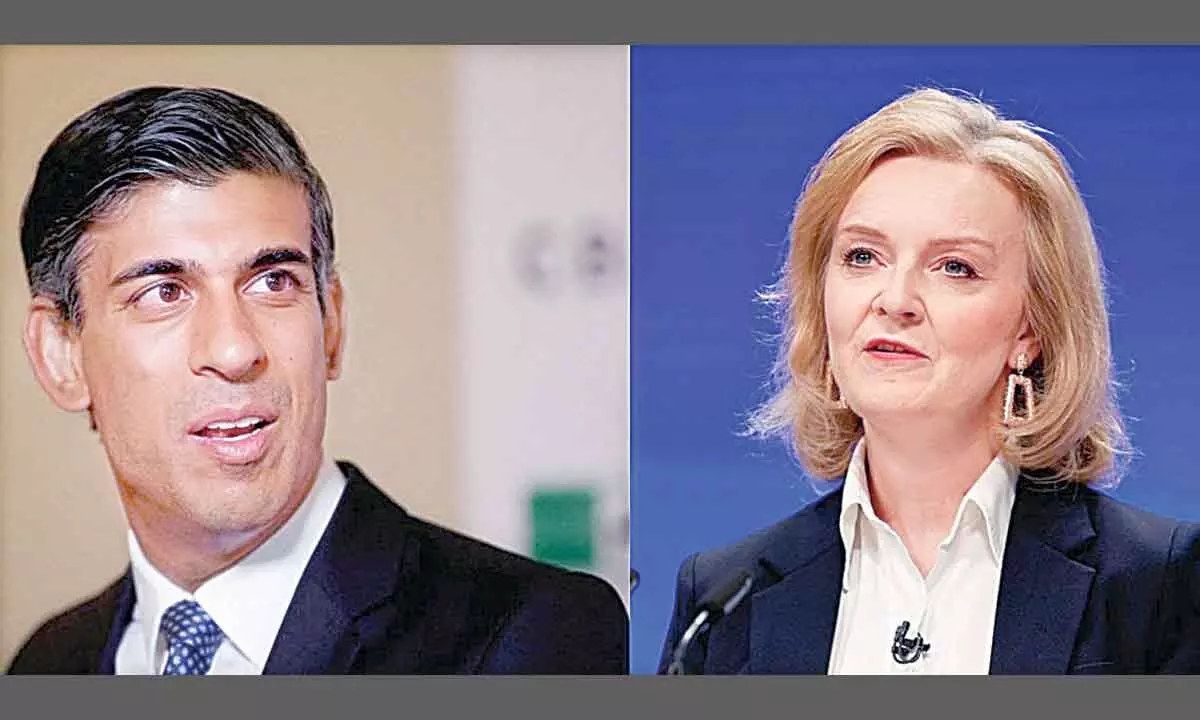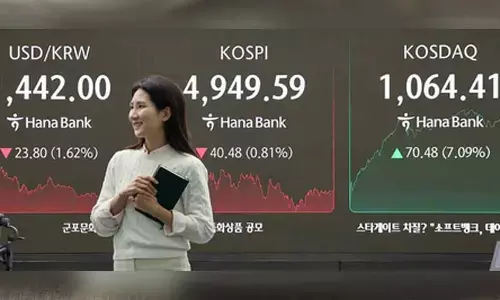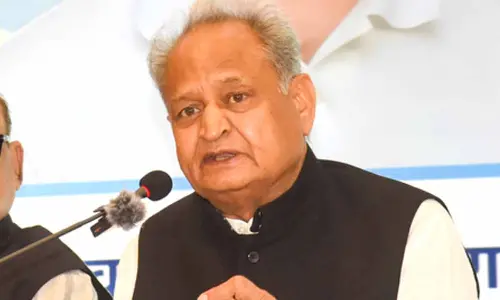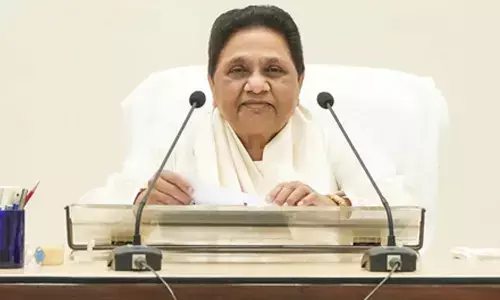Rishi Sunak now a distant second to Liz Truss

On current trends, it looks as if Britain might get its next Prime Minister without even having a public debate about whether it wants someone of Asian origin in the post.
London: On current trends, it looks as if Britain might get its next Prime Minister without even having a public debate about whether it wants someone of Asian origin in the post. Rishi Sunak, whose Indian parents moved to the UK via East Africa, was the front runner favoured by a majority of Conservative MPs when the contest for party leadership began. But that has changed.
All the opinion polls are now indicating that Sunak, till recently chancellor of the exchequer (Finance Minister), will be beaten by Liz Truss, the Foreign Secretary, who looked a gauche and unprepared candidate at the start but has now emerged as the favourite, winning growing support from Cabinet colleagues who want jobs in her administration.
The Times has reported a YouGov opinion poll of party members that showed Truss leading with 60% to Sunak's 26% and 14% undecided or not voting.
Nine out of ten of those polled said they had already decided who to vote for. There might still be time for the figures to change. Voting papers that were being sent out this week to some 160,000 party members are delayed for several days because of the risk of cyberattacks. The deadline for voting is September 2, but many recipients are expected to fill in the forms and return them quickly by post or on-line, so Sunak may not have long to reverse the apparent Truss lead.
Television and other public debates will continue through August, unless one of the candidates withdraws. The result is scheduled to be announced on September 5 and the winner will immediately replace the disgraced but unrepentant Boris Johnson as Prime Minister and move into Downing Street.
Sunak is clearly the more competent of the two candidates. He argues his economic policies lucidly with confidence and a grasp of detail – even surviving with few bruises a half-hour interview with an aggressive television anchor, Andrew Neil, who frequently crushes his guests. Truss has declined an invitation from Neil, presumably fearing she would not do anywhere near so well.
Unlike Truss, Sunak lacks broad government experience, especially on foreign affairs, having only entered politics in 2015. He also lacks political judgement, which he showed when he allowed the tax affairs of his immensely wealthy wife, Akshata Murthy, to become a political issue earlier this year. The daughter of India's leading IT tycoon, Infosys's Narayana Murthy, Akshata had retained non-domicile status and used it to escape some £20 million UK tax.
That became a major media story and was a setback for Sunak. It has now been corrected, but should have been changed in 2015, as should Sunak's US green card that he kept after working as a Goldman Sachs investment banker in America. He also seemed not to realise that their combined wealth, which the Sunday Times Rich List puts at £730m, would become a political hazard that needed managing, especially for a Finance Minister and an aspiring Prime Minister.
But despite those limitations, Sunak is the natural choice for party voters wanting a well-informed leader who would be clearly focussed on devising and executing sound policies – in sharp contrast to Johnson and also in contrast to Truss who has tended in her campaign to devise policy initiatives that grab instant headlines.
The main policy debate has been on the economy at a time when there is a cost-of-living crisis with inflation is running at over 9%, and there is virtually no economic growth. Truss is promising populist instant tax cuts funded by borrowing, which Sunak rejects because of rising national debt, though he has been forced to promise some tax cuts over seven years.
On Tuesday, Truss had to reverse a policy announced the night before that would have created regional public sector pay boards and caused pay cuts for government and other workers living outside London, including teachers and nurses.
This idea had been thought about and abandoned for many years by successive governments, but Truss presumably latched on to it as a headline grabbing initiative that would, she said, ultimately save £9 billion and help fund her tax cuts.














